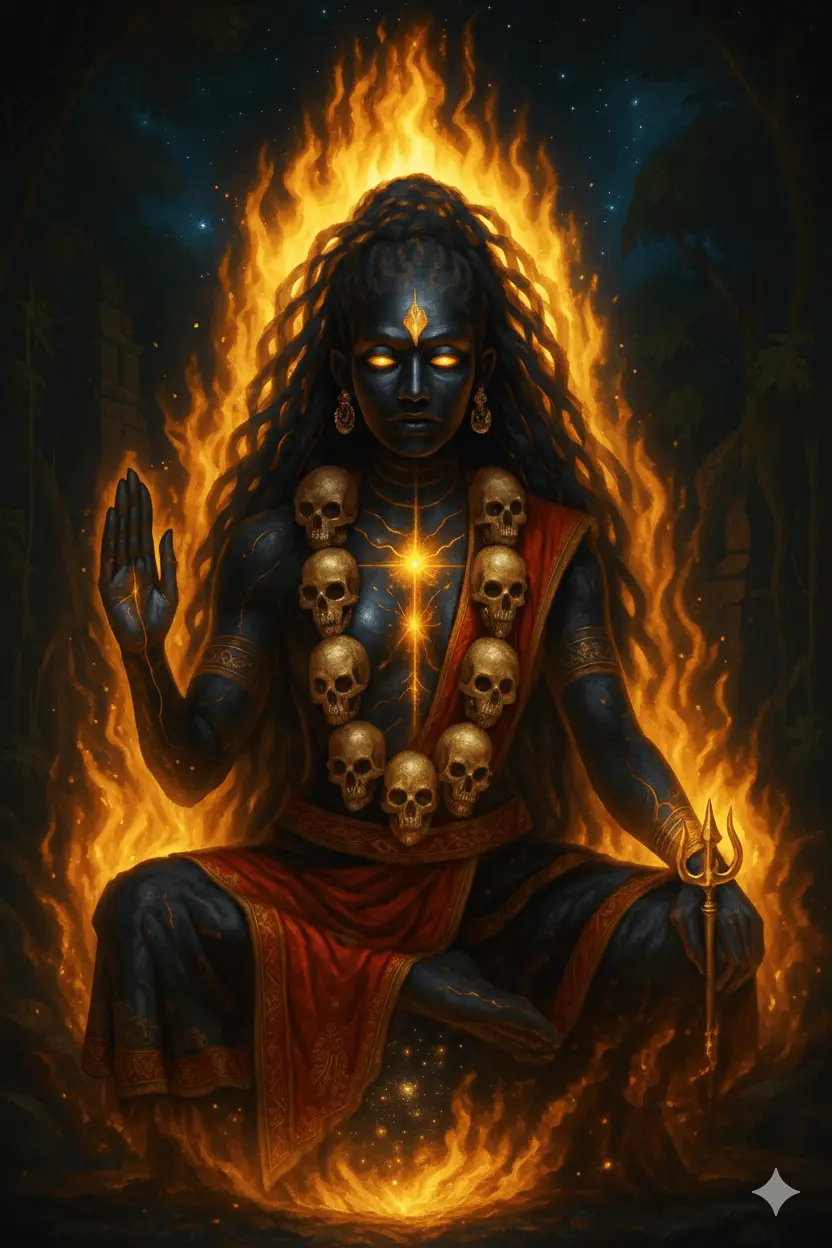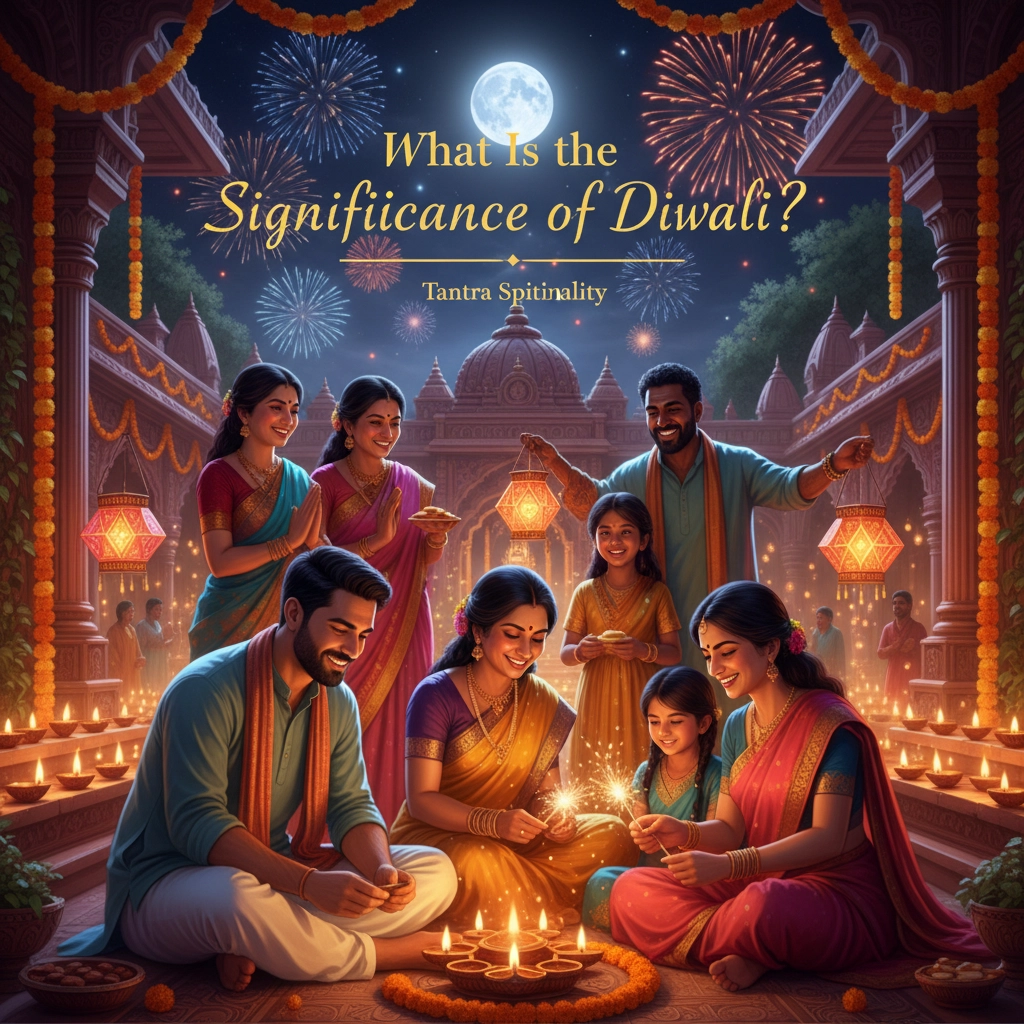When you see millions of tiny oil lamps flickering across India in late October or November, you're witnessing one of the world's most profound celebrations of light conquering darkness. Diwali, also called Deepavali (literally meaning "a row of lights"), isn't just about pretty decorations: it's a festival that cuts to the core of what it means to overcome the shadows in our lives.
If you've never experienced Diwali before, think of it as a spiritual New Year where entire communities come together to literally and symbolically banish darkness. But there's so much more beneath those twinkling lights than meets the eye.
The Stories That Light Up the Night
Diwali doesn't have just one origin story: it's like a beautiful tapestry woven from multiple sacred narratives that speak to different aspects of the human experience.
The most widely known tale comes from the ancient epic Ramayana. Picture this: Prince Rama returns home to Ayodhya after 14 long years of exile, bringing with him his wife Sita and brother Lakshmana. But this wasn't just any homecoming: Rama had just defeated Ravana, a powerful demon king who had kidnapped Sita. The people of Ayodhya were so overjoyed that they lit oil lamps throughout the city to guide their beloved prince home and celebrate good's victory over evil.
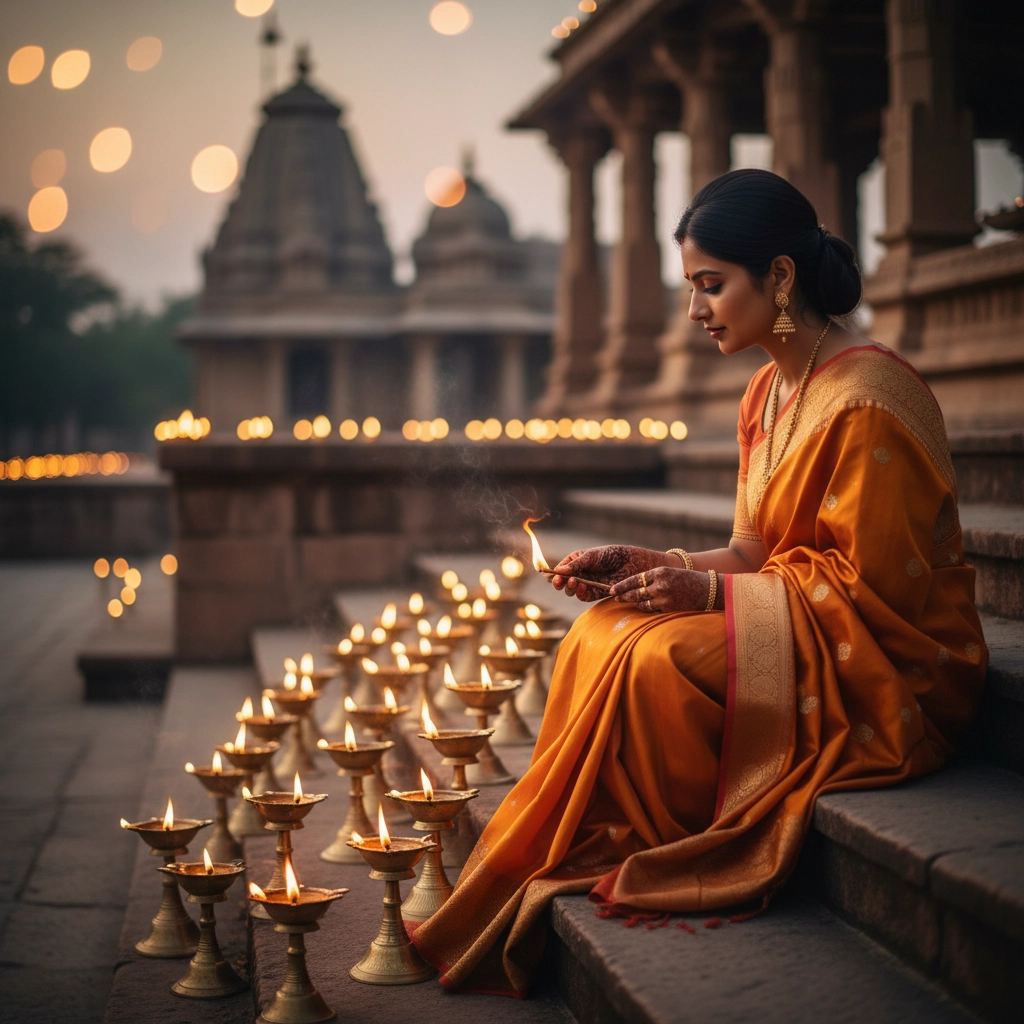
Another powerful story takes us to Lord Krishna's time. Krishna defeated Narakasura, a demon king who had imprisoned 16,000 women in his fortress. When Krishna freed them and destroyed this oppressor, it became another reason to celebrate the triumph of righteousness over cruelty. The day before Diwali, called Naraka Chaturdashi, specifically honors this victory.
Then there's the goddess Lakshmi, the divine embodiment of wealth, prosperity, and abundance. According to tradition, she emerged during the churning of the cosmic ocean and chose Lord Vishnu as her eternal partner. Diwali night is when Lakshmi is said to visit homes, blessing those who welcome her with light and devotion.
What's fascinating is how these stories aren't just ancient history: they're alive, speaking to universal struggles we all face: returning home after difficult journeys, overcoming oppressive forces, and inviting abundance into our lives.
The Deeper Spiritual Journey
Here's where Diwali gets really interesting from a spiritual perspective. Beyond the mythology, this festival is fundamentally about inner transformation. The lights aren't just decorations: they represent the illumination of consciousness itself.
Think about it: Diwali happens during the darkest new moon of the year. It's as if the festival is saying, "When external darkness is at its peak, that's precisely when we kindle our inner light most brightly." This isn't coincidental: it's deeply intentional.
The spiritual significance centers on what many traditions call the victory of knowledge over ignorance. But this isn't academic knowledge: it's the kind of deep knowing that comes from direct spiritual experience. It's about recognizing the divine light within yourself and others, even when everything around you seems shadowy or unclear.
In tantric philosophy, light represents pure awareness: that unchanging consciousness that witnesses all experiences but isn't touched by them. When we light a diya (oil lamp) during Diwali, we're not just performing a ritual; we're acknowledging this eternal flame of awareness that exists within us.
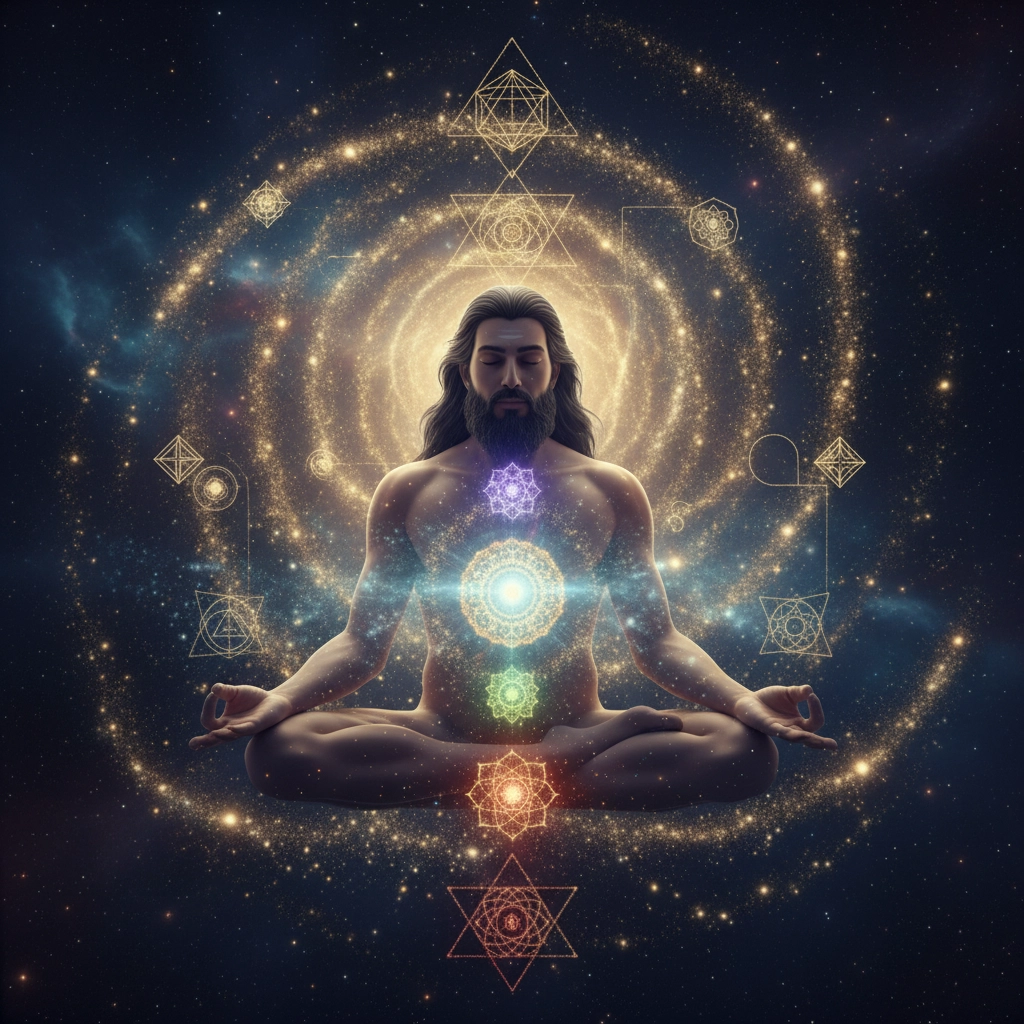
Many people don't realize that Diwali is also about destroying what Hindus call the "inner enemies": things like jealousy, anger, pride, and ignorance. Each flame becomes a tool for burning away these obstacles to spiritual growth. It's spiritual housecleaning on the deepest level.
How the Magic Unfolds
If you've never witnessed Diwali celebrations, imagine entire neighborhoods transformed into galaxies of light. Families spend days preparing their homes, cleaning every corner (both literally and energetically), and creating intricate rangoli patterns with colored powders at their doorsteps.
The preparations begin weeks in advance. People buy new clothes, prepare special sweets called mithai, and gather with extended family. On the main night, families perform Lakshmi puja: a ceremony welcoming the goddess of prosperity into their homes. They light dozens of diyas, placing them on windowsills, balconies, and rooftops.
The sensory experience is overwhelming in the best way. The sweet fragrance of jasmine and marigolds mixes with the smoke from oil lamps. Children run through streets with sparklers while fireworks light up the sky. Markets buzz with activity as people exchange gifts and sweets with neighbors, friends, and family members.
But here's what many outsiders miss: the quiet moments. Between all the celebration, families take time for reflection and prayer. They meditate on the year that's passed, set intentions for what's coming, and express gratitude for their blessings.
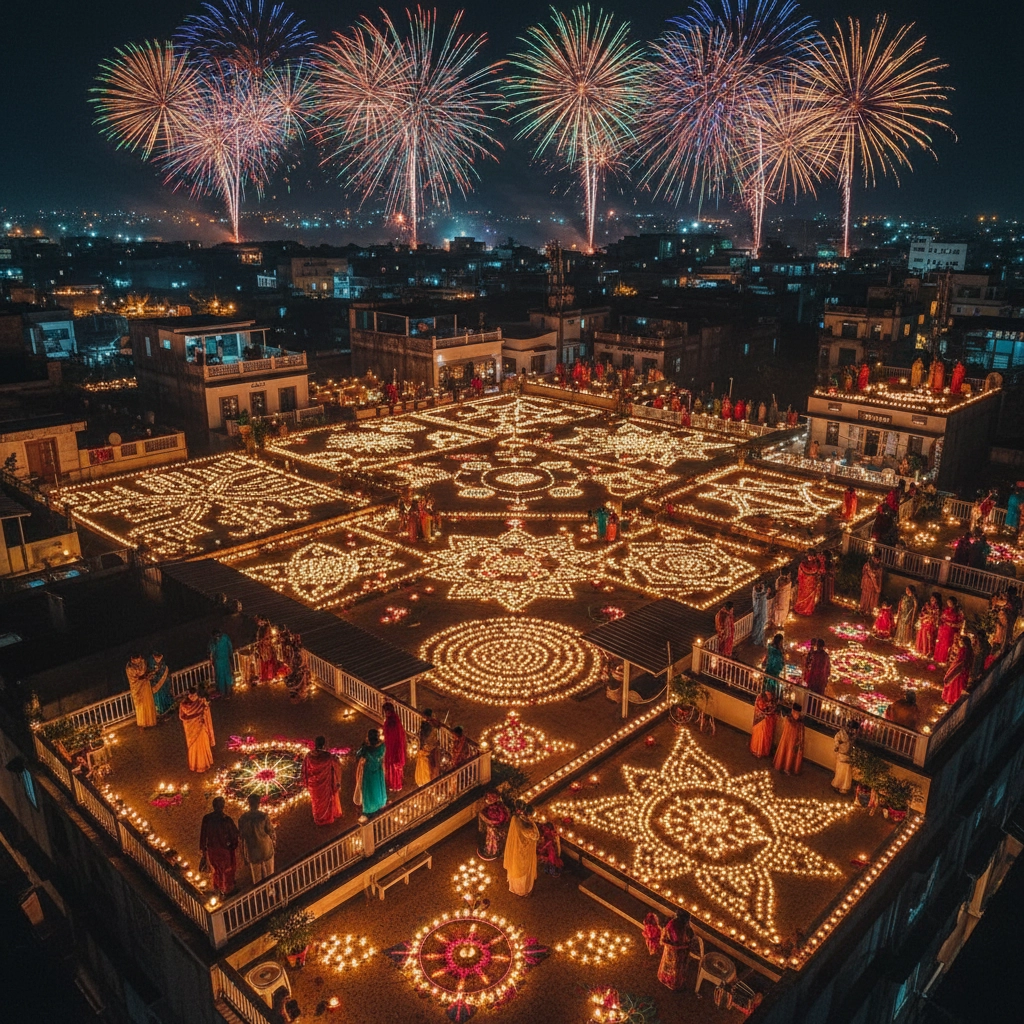
The five-day festival actually has different themes for each day. The first day honors Dhanteras, celebrating wealth and health. The second day, Naraka Chaturdashi, focuses on cleansing and protection. The main Diwali night is about welcoming Lakshmi. The fourth day celebrates the bond between spouses, while the final day honors the relationship between brothers and sisters.
Beyond Hindu Boundaries
Here's something beautiful that many people don't know: Diwali isn't celebrated by Hindus alone. This festival has transcended religious boundaries to become a celebration of universal values.
Sikhs celebrate Diwali to commemorate the release of their sixth Guru, Guru Hargobind, from imprisonment by the Mughal emperor. For them, it represents the victory of spiritual freedom over political oppression.
Jains observe Diwali as the day their great teacher Mahavira attained moksha (liberation from the cycle of rebirth). It marks the moment when a fully realized soul returned to the source, representing the ultimate triumph of consciousness over material existence.
Even some Buddhist communities, particularly the Newar Buddhists of Nepal, celebrate by honoring Goddess Lakshmi, integrating the festival into their own spiritual framework.
This multi-faith celebration shows how certain truths are universal. The human need to honor light over darkness, hope over despair, and love over fear crosses all boundaries.
Ancient Wisdom for Modern Lives
In our current world, where many people feel disconnected from nature's rhythms and spiritual practices, Diwali offers something profound. It's a reminder that we can choose to be sources of light in dark times.
The festival teaches us that transformation is possible: both individual and collective. When communities come together to celebrate light, they're not just participating in tradition; they're actively creating the change they want to see.
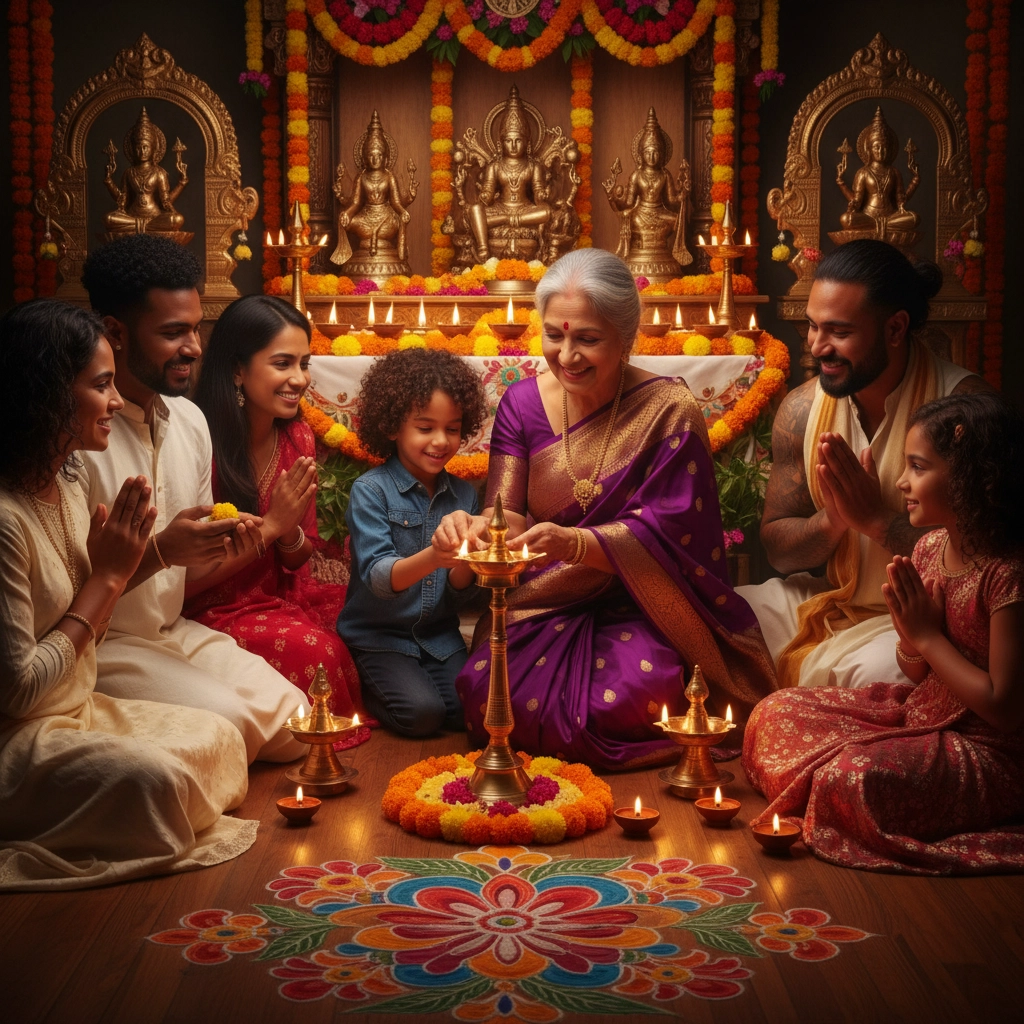
From a wellness perspective, Diwali embodies practices that modern psychology recognizes as beneficial: community connection, gratitude practices, setting positive intentions, and creating beauty in our environment. The act of lighting lamps becomes a form of active meditation, while the community gatherings strengthen social bonds that support mental health.
For those on spiritual paths, Diwali offers a template for personal practice. You don't need to be Hindu to appreciate the wisdom of regularly "cleaning house" both physically and energetically, of taking time to honor abundance in your life, or of gathering with others to celebrate what's good and beautiful.
The festival reminds us that light isn't just something we hope for: it's something we can actively create and share. Every time we choose compassion over judgment, understanding over ignorance, or hope over fear, we're participating in the same victory that Diwali celebrates.
In a world that can sometimes feel overwhelmingly dark, Diwali's message is both simple and revolutionary: the light wins. Not because darkness doesn't exist, but because even the smallest flame can illuminate an entire room. And when millions of people light their lamps together, that's when the real magic happens.
This ancient festival continues to speak to modern hearts because its truth is timeless: we are all capable of being bearers of light, and when we come together in that intention, we create something luminous that extends far beyond ourselves.
